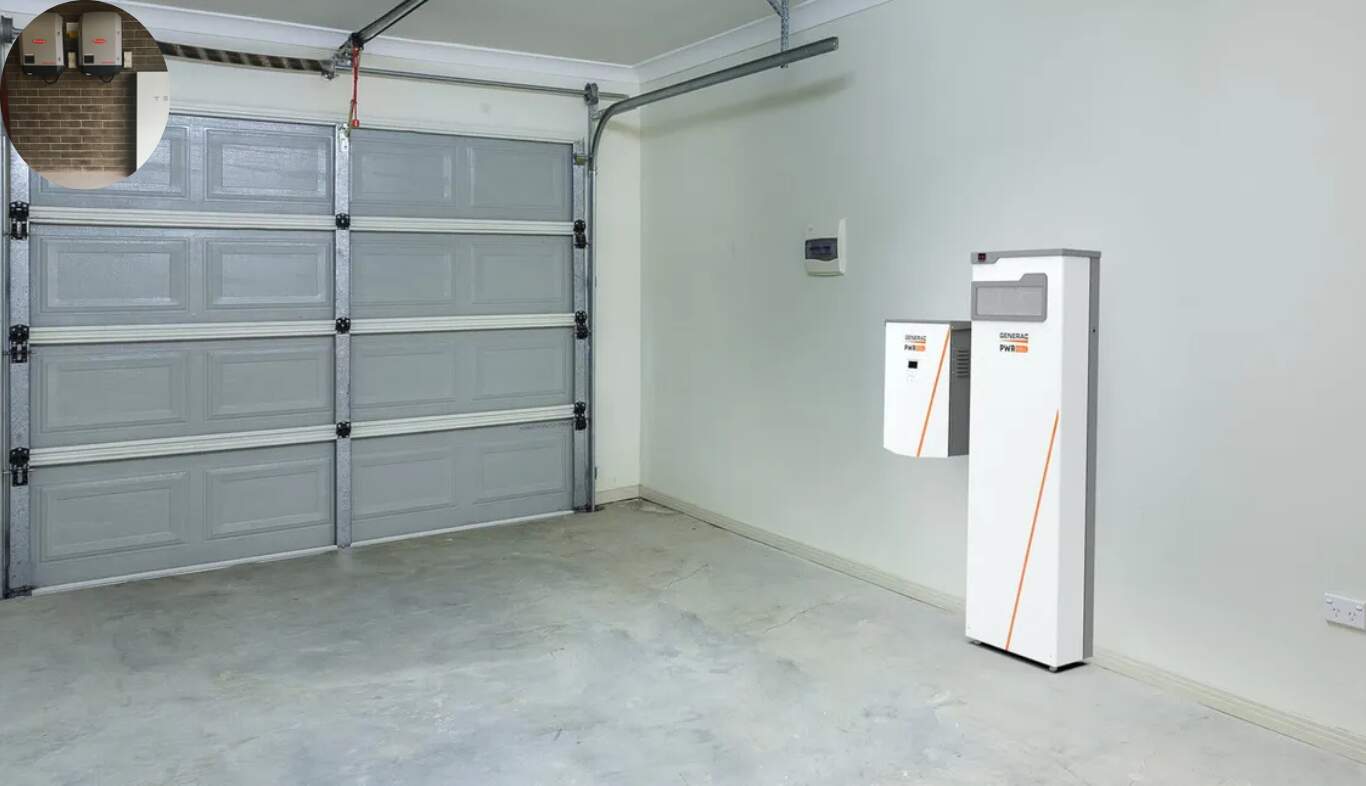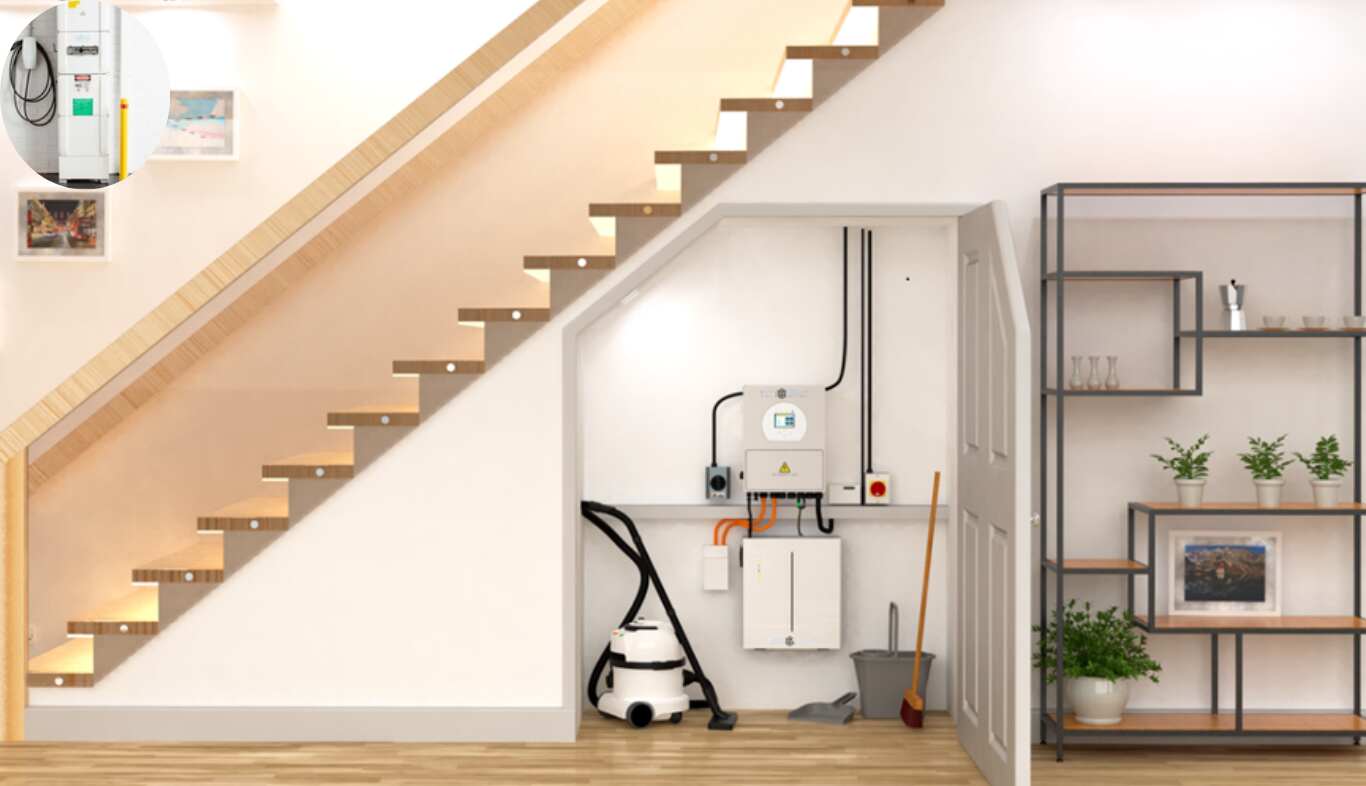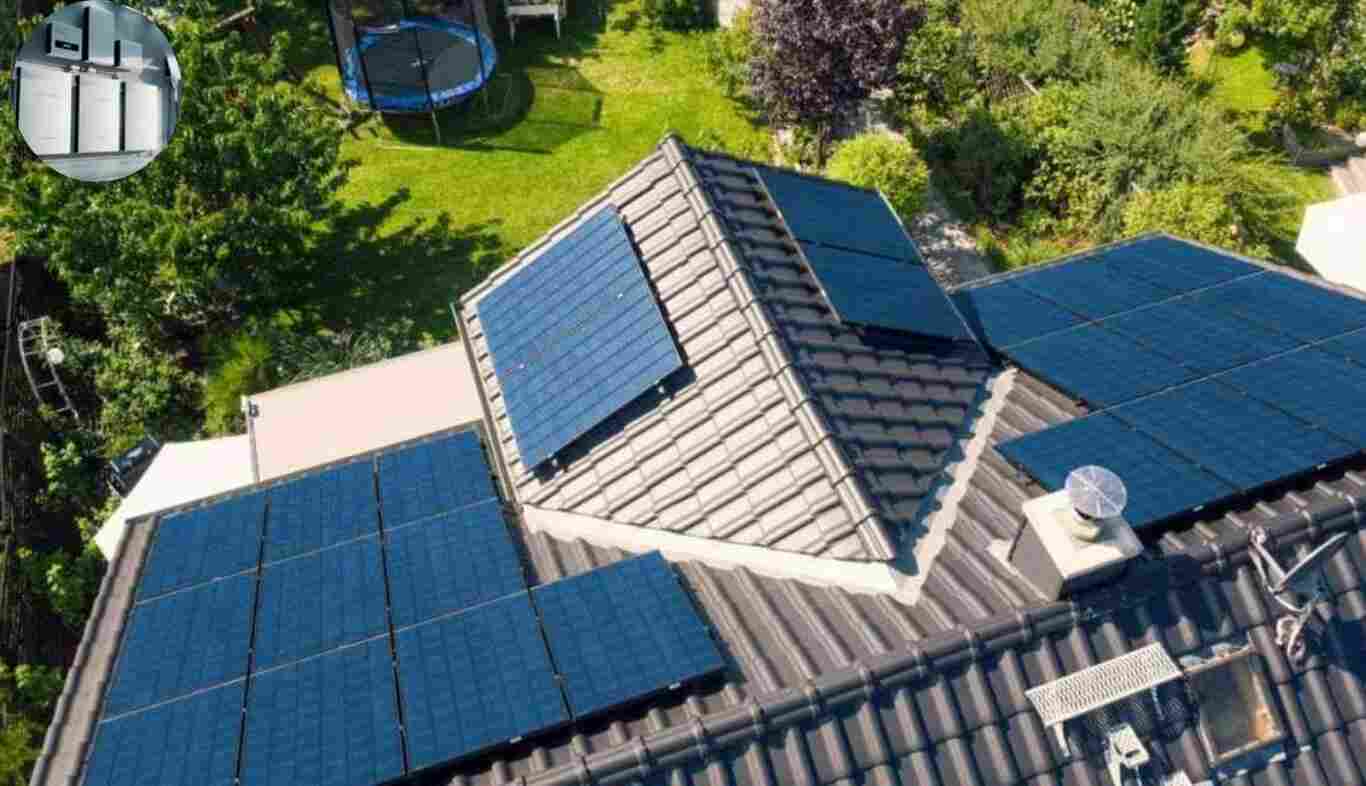Renewable Energy Is The Future and Homes worldwide are Switching To Sustainable Solutions for Reducing Their Carbon Footprint and Energy Expenses. The solar revolution of the twenty-first century Solar energy is leading the charge, and solar farms have become ubiquitous in residential areas. The true breakthrough in solar technology comes not only from producing energy, but also from efficiently storing it. That’s where solar batteries come into play.
What Are Solar Batteries?

Understanding Solar Batteries
In a nutshell, a solar battery is an energy storage device built to store energy generated by solar panels. Rather than wasting excess energy when the sun is not shining (such as at night or on cloudy days), solar batteries enable homeowners to save up the energy for future use. They are a critical component in maximizing the performance of any solar power system.
Types of Solar Batteries
There are diverse solar battery types, and each type has unique capabilities that can meet your needs:
Lithium-Ion Batteries
Lithium-ion batteries have become the standard in home use solar batteries due to their efficiency, longevity, and small size.
They can pack more energy in more compact spaces and have very low maintenance footprints.
Example: Tesla Powerwall
Lead-Acid Batteries
These are an older technology but remain common because of their low cost.
But they are larger and less durable than lithium-ion batteries.
Also read (how to connect two modems in one house)
Flow Batteries
These are batteries that store energy in liquid electrolytes.
They’re stable and suitable for bulk energy storage, but are less popular for home use because of a higher price tag.
Why Are Solar Batteries on the Rise in Homes?
The increasing focus on energy independence and sustainability is paving the way for a rise of solar batteries inside a home. Homeowners can depend less on the grid, cut down on their electricity bill, and help create a greener future.
Advantages of Installing Solar Batteries in Your Home

There are many benefits of solar batteries, making them a great investment for every home.
Energy Independence
Reducing a homeowner’s dependence on the electrical grid is one of the key reasons for purchasing solar batteries. You can harness solar energy generated in the daytime and store it for powering the home, at night or during dull weather. This means that you always have a backup source of electricity, even if there are problems with your local utility company.
Backup Power During Outages
Power outages can be more than just a nuisance; they can be dangerous, especially if you’re dependent on medical devices or need food to stay refrigerated. Solar batteries act as a back-up power source during blackouts, keeping essential appliances running.
Cost Savings
The price of electricity is going up the world. Using stored energy at peak hours, when grid electricity is the most expensive, can really reduce your costs. Over time, it can lead to significant savings. Moreover, homes with “time-of-use” electricity pricing are able to better match their energy consumption for economic efficiency.
Environmental Impact
A home with solar batteries can help to free you from fossil fuels and significantly reduce your carbon footprint. The new initiatives will also mitigate climate change and build a more sustainable future.
Here’s a brief overview of the advantages:
| Benefit | Description |
|---|---|
| Energy Independence | Store excess solar energy for use anytime, reducing dependence on the grid. |
| Backup Power | Keeps your home powered during outages or emergencies. |
| Cost Savings | Reduces electricity bills by using stored energy during peak hours. |
| Environmental Benefits | Promotes renewable energy use and reduces carbon emissions. |
How Do Solar Batteries Work?

Now, to learn just how solar batteries work in a home let’s take it one step at a time.
Energy Storage Process
Your solar panels create energy in the form of direct current (DC) electricity. This power is either consumed directly by your home or exported into a solar battery for storage. If you generate too much energy to store in your battery, it goes back to the grid (if your system is grid-tied).
Whenever you require using this stored energy, an inverter will transform DC electricity into alternating current (AC) electricity that furnishes your home appliances.
Interfacing with Solar Panels and the Electric Grid
Solar batteries work with your home’s electrical system. They complement solar panels and your inverter to deliver reliable, consistent power flow.
All You Need to Know About Solar Batteries at Home
Scalability: As your energy needs increase, you can add batteries to expand storage capacity.
Automation: A common feature of contemporary solar battery systems is their ability to self-manage energy flow, maintaining efficiency without any manual intervention.
How Solar Batteries are Used Within a Home

Solar batteries serve many functions on your home. Some of the most frequent use cases are as follows:
Powering Essential Appliances
Solar batteries produce emergency power to keep essential home devices running — refrigerators, lights, heating systems — even when the grid goes down. Especially in extreme weather areas, this proves quite useful.
Energy Management
Many household’s have time-of-use electricity rates, which cost more during peak times. Solar batteries enable you to accumulate energy during the day and tap into it later, when electricity prices are at their peak, meaning saving money.
Integration with Smart Home Systems
Smart home compatibility: Many modern solar batteries can integrate with smart home devices, allowing for automated energy management. You can program your system to rely on stored energy at certain times, for example, or remotely control the system with a smartphone app.
How to Charge Electric Vehicles (EVs)
Electric vehicle users can charge their vehicles on-site, limiting the amount of energy drawn from the grid and off-setting fuel costs.
How to Select the Right Solar Battery for Your Home

Choosing the best solar battery for your needs is important because it will help you make the most of the solar energy produced in your home. Here are some things to keep in mind:
Capacity and Size Specifications
Calculate your household’s energy usage to ensure you pick a battery that has ample storage capacity.
A small house may require 5–10 kWh batteries, while larger ones may need 10–20 kWh or more.
Battery Lifespan and Warranty
Seek out batteries with long lifespans (10–15 years) and robust warranties to give you peace of mind.
Solar Panels Compatibility
If you own a solar panel system, make sure that the battery is compatible to avoid integration issues.
Popular Solar Battery Models
TeslaPowerwallHigh capacity, compact design, and smart features. LG ChemRESUAt a GlanceReliable, efficient and scalable. SonnenEcoEco-friendly and made to last.
Installation Process
Installation Guidelines for Solar Batteries in Residential Areas
- Assess Energy Needs: Evaluate daily energy consumption to size your battery.
- Installation Make Sure: In Safety, Ventilated Place
- Professional Installation: Engaging a qualified installer guarantees optimal placement and compliance with safety codes.
Safety Considerations
- Make sure to supply adequate airflow to avoid overheating.
- Follow the use of the equipment properly, do not overload the system, do not connect wrong wiring will not only cause the equipment does not work properly, will also lead to safety hazards.
Solar Battery Maintenance Tips
To maximize the lifespan and efficiency of your solar battery, proper maintenance is essential.
Regular Inspections
Check your battery system regularly for wear, damage, or corrosion.
Cleaning and Storage
Keep the battery terminals clean and store smoke bombs in a cool, dry, well-ventilated area.
Monitoring Performance
Track battery performance and energy usage with apps or monitoring systems from the manufacturer
Challenges and Limitations
Solar batteries have many benefits, but they also have a few challenges:
- Cost: Solar batteries can be expensive in terms of installation and price.
- Space Requirement(s): Appropriate placement requires correct space, either indoor or outdoor.
- Compatibility Challenges : Older solar panel setups might not integrate seamlessly with modern batteries.
Key Future Trends of Solar Battery Technology
There are a lot of exciting advances in solar batteries, and the future of these systems is looking bright:
- Solid-State Batteries: These offer higher energy density and a longer lifespan.
- AIIntegration — AI would automatically optimize your energy usage with smart grids.
- Sustainability: Recycling programs for old batteries are making the technology greener.
Conclusion
Solar batteries are changing how we use renewable energy in the home. Solar panels provide energy independence, cost savings, and a way to green your power. This sense of solar batteries in a house will grow as the technology improves making them a staple of modern life.
If you’re ready to move forward, find solar battery options for your home today or reach out to a professional installer to begin the process. The world needs sustainable products, and we should work towards them one battery at a time!
Also read (why do mice come in the house in the summer)
